40 dv on food labels
Understand Food Labels - UF/IFAS Extension Marion County Daily Value Percentage (% DV) and Footnote (in blue): As noted in the chocolate bar's footnote "The % Daily Value (%DV) tells you how much a nutrient in a serving of food contributes to a daily diet. 2.000 calories a day is used for general nutrition advice." This simply means that the nutrient section is calculated based on a 2,000-calorie diet. Daily Value: Definition and How to Calculate It - Insider Found on the nutrition label, the daily value system tells you can help you determine if a product is high or low in particular nutrients. What does daily value mean? Daily value (DV) refers to how much of a nutrient you should consume each day based on a 2,000 calorie diet. You can find daily values for a range of nutrients on the FDA's website.
What Does "% Daily Value" Mean on a Food or Supplement Label? Generally, the Daily Values chosen for nutrient labels are based on a 2,000-calorie diet for healthy adults — except for when they aren't. Sometimes — particularly when it comes to critical nutrients — they reflect the needs of a population sub-group that requires more. For example, the RDA for iron is 8 mg for men and 18 mg for women.

Dv on food labels
What does %DV, "Good Source" & "High Source" mean? Simply put, the daily value (which is not listed on nutrition labels) is the amount of each nutrient that an average person (above age 4) needs for basic health—assuming the average person also requires about 2,000 calories per day. The percentage shows the amount of the DV that the food provides per serving. FDA Rounding Rules for Your Food Label - LabelCalc A Guide to Using FDA Rounding Rules for Your Food Label. Online nutrition analysis software makes easy work of the FDA's complex rounding rules. Image source: Unsplash user Volkan Olmez. ... "less than 2% of the Daily Value for X nutrient." Use an asterisk to denote this underneath and place the statement in the footnote section of the ... Food Labels | CDC - Centers for Disease Control and Prevention All the numbers on this label are for a 2/3-cup serving. This package has 8 servings. If you eat the whole thing, you are eating 8 times the amount of calories, carbs, fat, etc., shown on the label. Total Carbohydrate shows you types of carbs in the food, including sugar and fiber. Choose foods with more fiber, vitamins, and minerals.
Dv on food labels. What Is the Difference Between DRI & Daily Value? This number, called the daily value or DV, is based on the amount of each nutrient needed for a 2,000-calorie-a-day diet. You won't find the daily value on the nutrition facts label. Instead, it's... Daily Values (DVs) - National Institutes of Health DVs were developed by the U.S. Food and Drug Administration (FDA) to help consumers determine the level of various nutrients in a standard serving of food in relation to their approximate requirement for it. The label actually provides the %DV so that you can see how much (what percentage) a serving of the product contributes to reaching the DV. How to Read Food Labels: Your Complete Consumer Guide The rightmost column of the Nutrition Facts portion of the label gives you the percent of Daily Value (DV) of that particular food component. Most labels carry an asterisked explanation such as, "The % Daily Value (DV) tells you how much a nutrient in a serving of food contributes to a daily diet. 2,000 calories per day is used as general ... Percent daily value - Canada.ca The % DV is found on the right-hand side of a nutrition facts table. It is a guide to help you make informed food choices. It shows you if the serving size has a little or a lot of a nutrient: 5% DV or less is a little 15% DV or more is a lot This applies to all nutrients with a % DV.
Food Label Quiz Study Guide Flashcards | Quizlet total calories in food/DV. Determining %C from the fat calculation. ... %DV on Food Labels is based on a how many Calorie diet and how many servings? %DV value on food labels based on 2,000 calorie diet and one serving. Sets with similar terms. Nutrition Ch. 2. 48 terms. nicoledaher10. Daily Value on the New Nutrition and Supplement Facts Labels The Nutrition Facts label must list total fat, saturated fat, trans fat, cholesterol, sodium, total carbohydrate, dietary fiber, total sugars, added sugars, protein, and certain vitamins and... Solved 21. From Food Labels: What is DV? According to FDA, | Chegg.com Expert Answer. DV in food labels refers to Percentage daily value of nutrients in one serving of the given food .This is …. View the full answer. Transcribed image text: 21. Food Labeling: MedlinePlus With this, you can figure out if a food is high or low in a nutrient: 5% or less is low, 20% or more is high. The information on a food label can help you see how a certain food or drink fits into your overall diet. The label lists, per serving,: The number of calories. Fats, including total fat, saturated fat, and trans fat. Cholesterol. Sodium.
What does dv mean on food labels? - Dane101 Percent Daily Value (DV) on the Nutrition Facts label is a guide to the nutrients in one serving of food. For example, if the label lists 15% for calcium, it means that one serving provides 15% of the calcium you need each day. DV s are based on a 2,000-calorie diet for healthy adults. What does 5 percent DV mean in food? The Lows and Highs of Percent Daily Value on the Label 5% DV or less of a nutrient per serving is considered low. 20% DV or more of a nutrient per serving is considered high. More often, choose foods that are: Higher in dietary fiber, vitamin D,... FDA Food Label Nutrients Without a DV - Metabolic Research Center This is because it hasn't established any specific guidelines about how much a person can consume for optimal health. Food manufacturers are required to give a percentage of the daily value for protein if a product is labeled as being high in protein, or if it's specifically made for children or infants under the age of four. Avoid These... What does percent Daily Value (DV) on food labels mean? A food item with a 5 percent DV means 5 percent of the amount of fat that a person consuming 2,000 calories per day would eat. Remember, percent DVs are for the entire day -- not just for one meal or snack. You may need more or less than 2,000 calories per day. For some nutrients you may need more or less than 100 percent DV. SecondsCount.org
Daily Value and Percent Daily Value: Changes on the New Nutrition and ... Facts Labels Daily Value vs. % Daily Value First, let's look at how Daily Value (DV) and Percent Daily Value (%DV) work together. ... Use %DV to determine if a serving of the food is high or low ...
How to Understand and Use the Nutrition Facts Label | FDA - U.S. Food ... 5% DV or less of a nutrient per serving is considered low 20% DV or more of a nutrient per serving is considered high More often, choose foods that are: Higher in %DV for Dietary Fiber, Vitamin D,...
Percent Daily Value: What does it mean? - Drugs.com Percent Daily Value (DV) on the Nutrition Facts label is a guide to the nutrients in one serving of food. For example, if the label lists 15% for calcium, it means that one serving provides 15% of the calcium you need each day. DVs are based on a 2,000-calorie diet for healthy adults.
Guidance for Industry: Guide for Developing and Using Data Bases for ... The ratio between a laboratory finding of 4.8 mg vitamin C/serving (i.e., 8% DV) and the label value of 10% DV would be calculated as follows: (8% / 10%) x 100 = 80% or (4.8 mg / 6 mg) x 100 = 80%...
eCFR :: 21 CFR Part 101 -- Food Labeling § 101.1 Principal display panel of package form food. The term principal display panel as it applies to food in package form and as used in this part, means the part of a label that is most likely to be displayed, presented, shown, or examined under customary conditions of display for retail sale. The principal display panel shall be large enough to accommodate all the mandatory label ...
How to Calculate % of Daily Value on Food Labels | livestrong Percent of daily value is included for many nutrients but not all. Video of the Day Step 1 Find the nutrient amount on the food label. Step 2 Look up the total daily recommended amount in the USDA Dietary Guidelines. Step 3 Divide the nutrient amount by the total daily recommended value. Step 4 Multiply by 100. Things You'll Need
Food Labels: Fat & Cholesterol | Home & Garden Information Center The 2015 Dietary Guidelines for Americans recommends the following intakes of fat and cholesterol every day: total fat—20 to 35% of calories, depending on age and gender (65 grams for the 2,000-calorie intake level used in the Daily Value)*. saturated fat—less than 10% of calories**. trans fat— keep as low as possible.
Understanding Food Labels - Nutrition: Science and Everyday Application The value printed on the Nutrition Facts panel is the percent DV, which tells you how much one serving of the food contributes towards meeting the daily requirement for that nutrient. The FDA uses the following definitions for interpreting the %DV on food labels:4. 5%DV or less means the food is low in a nutrient.
Understanding Food Nutrition Labels | American Heart Association 5 - Understand % Daily Value. The % Daily Value (DV) tells you the percentage of each nutrient in a single serving, in terms of the daily recommended amount. ... When the Nutrition Facts label says a food contains "0 g" of trans fat, but includes "partially hydrogenated oil" in the ingredient list, it means the food contains some trans ...
How to Calculate Percentage DV for a Nutrient - SFGATE Divide the given amount of the nutrient by the appropriate recommended daily value found on the FDA guide. So if your item contains 300 milligrams of calcium per serving, divide 300 by 1,000, which...
How To Read Food and Beverage Labels - National Institute on Aging Or you can call the U.S. Department of Agriculture's Food and Nutrition Information Center at 301-504-5414. Understanding percent Daily Value (% DV) The percent Daily Value (% DV) tells how much a nutrient in a serving of the food or beverage contributes to a total daily 2,000-calorie diet.
Food Labels | CDC - Centers for Disease Control and Prevention All the numbers on this label are for a 2/3-cup serving. This package has 8 servings. If you eat the whole thing, you are eating 8 times the amount of calories, carbs, fat, etc., shown on the label. Total Carbohydrate shows you types of carbs in the food, including sugar and fiber. Choose foods with more fiber, vitamins, and minerals.
FDA Rounding Rules for Your Food Label - LabelCalc A Guide to Using FDA Rounding Rules for Your Food Label. Online nutrition analysis software makes easy work of the FDA's complex rounding rules. Image source: Unsplash user Volkan Olmez. ... "less than 2% of the Daily Value for X nutrient." Use an asterisk to denote this underneath and place the statement in the footnote section of the ...
What does %DV, "Good Source" & "High Source" mean? Simply put, the daily value (which is not listed on nutrition labels) is the amount of each nutrient that an average person (above age 4) needs for basic health—assuming the average person also requires about 2,000 calories per day. The percentage shows the amount of the DV that the food provides per serving.


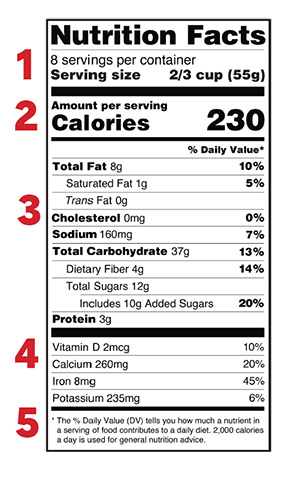

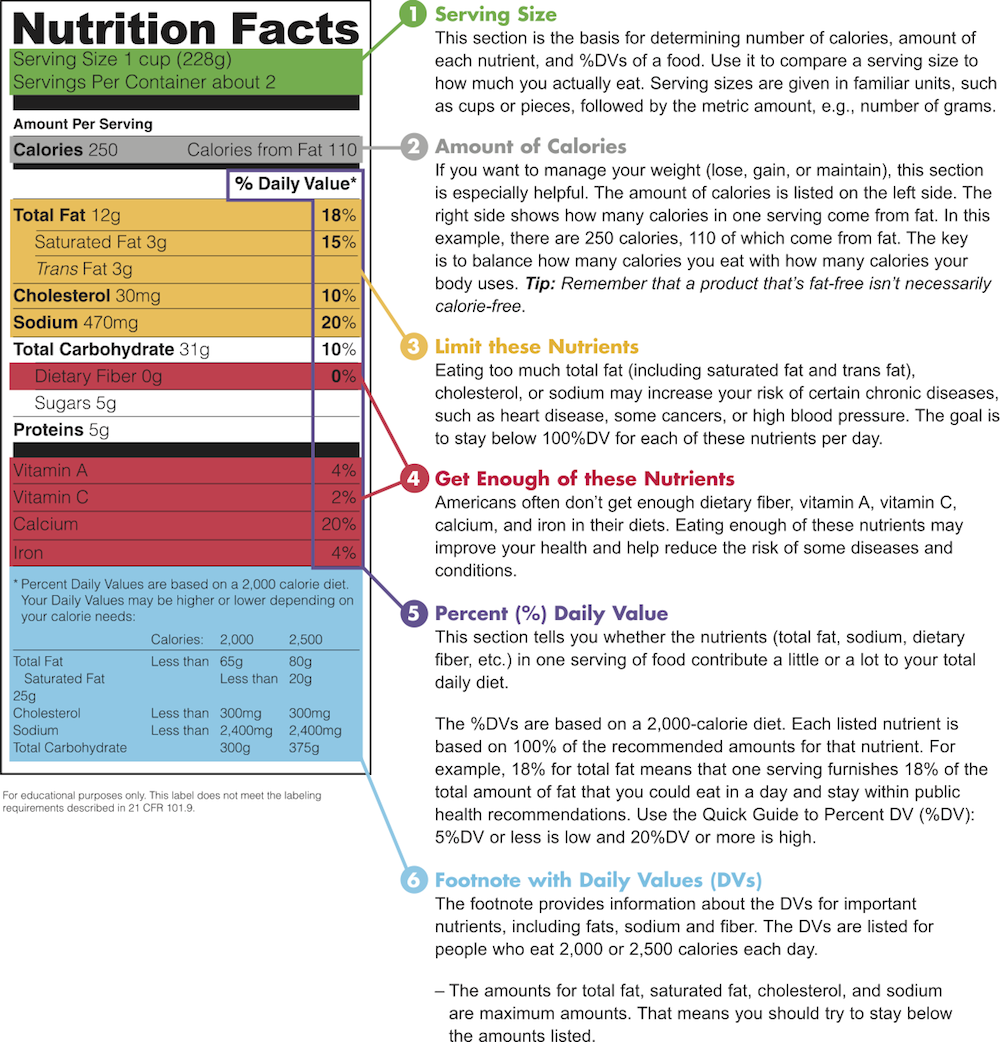
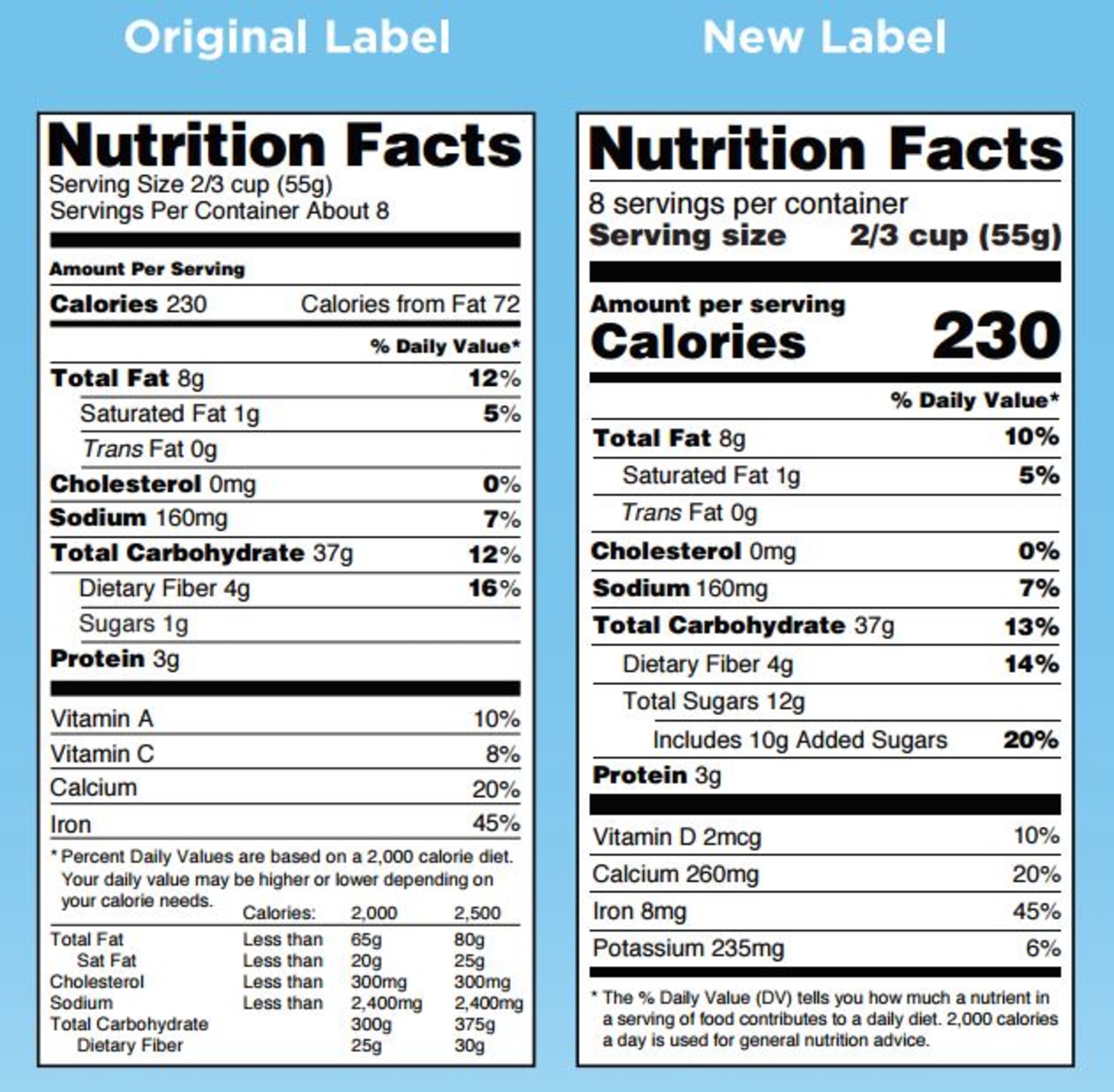
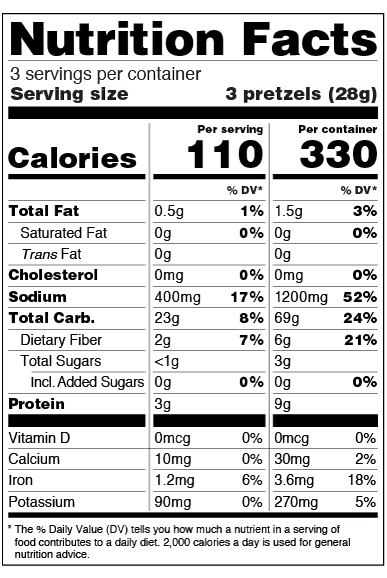


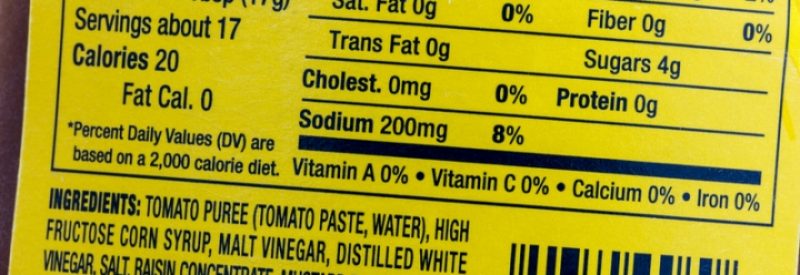


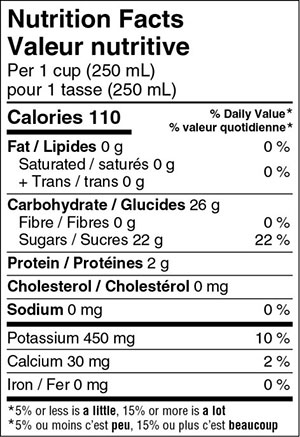



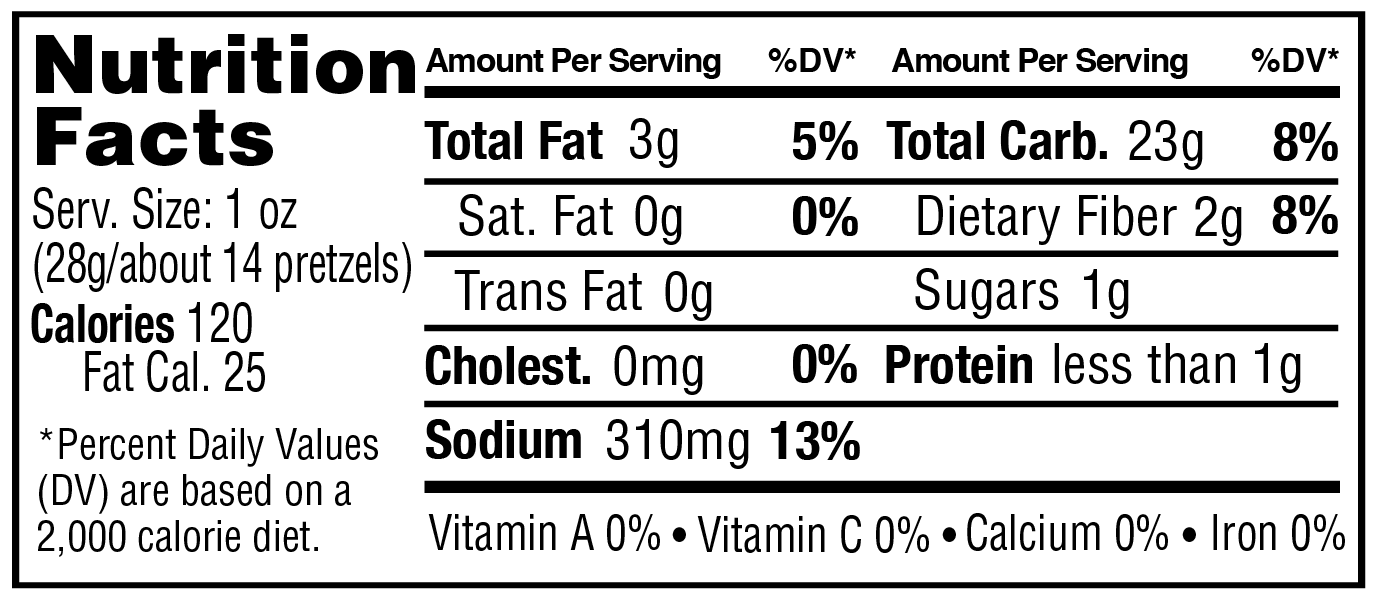
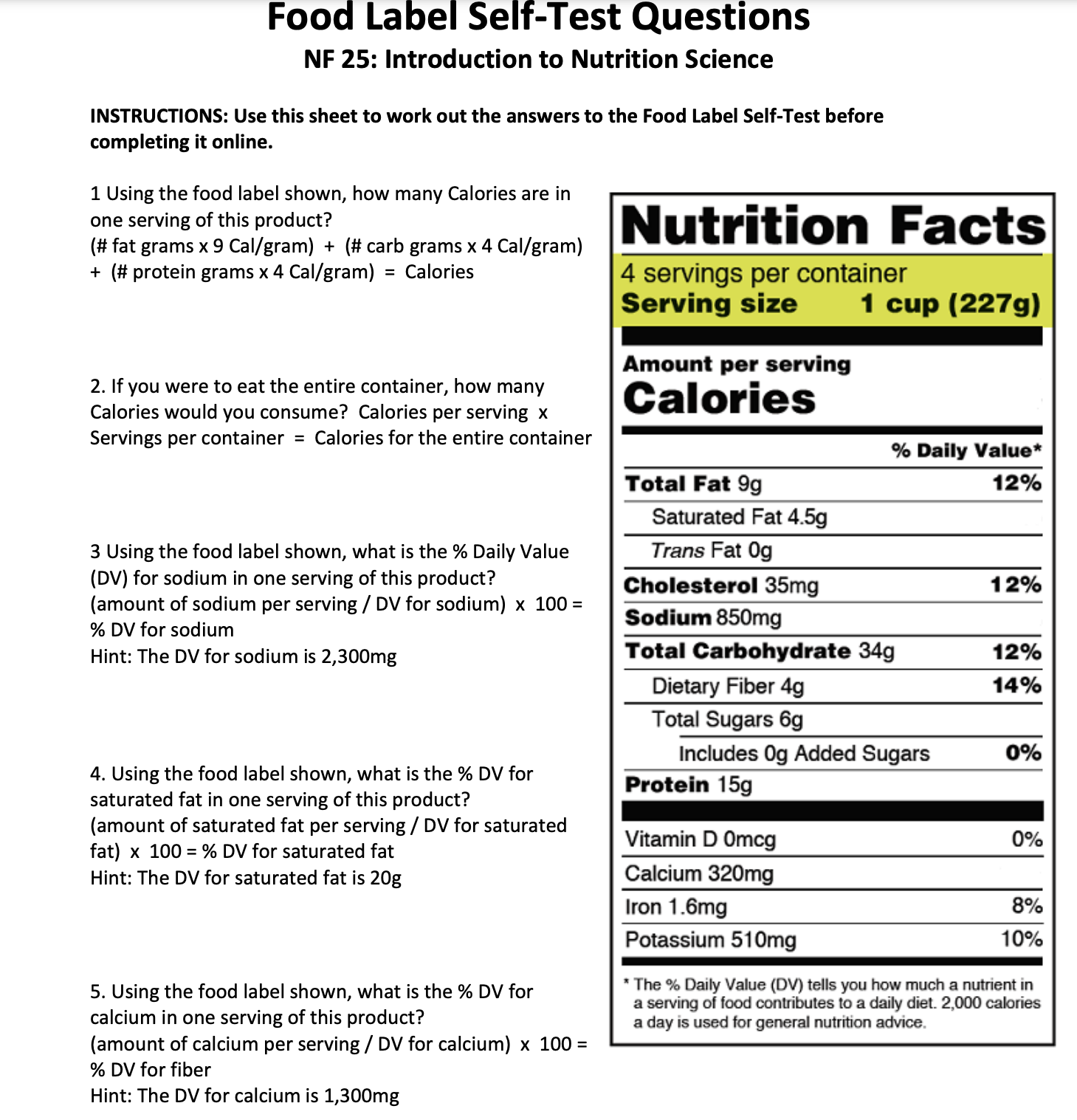

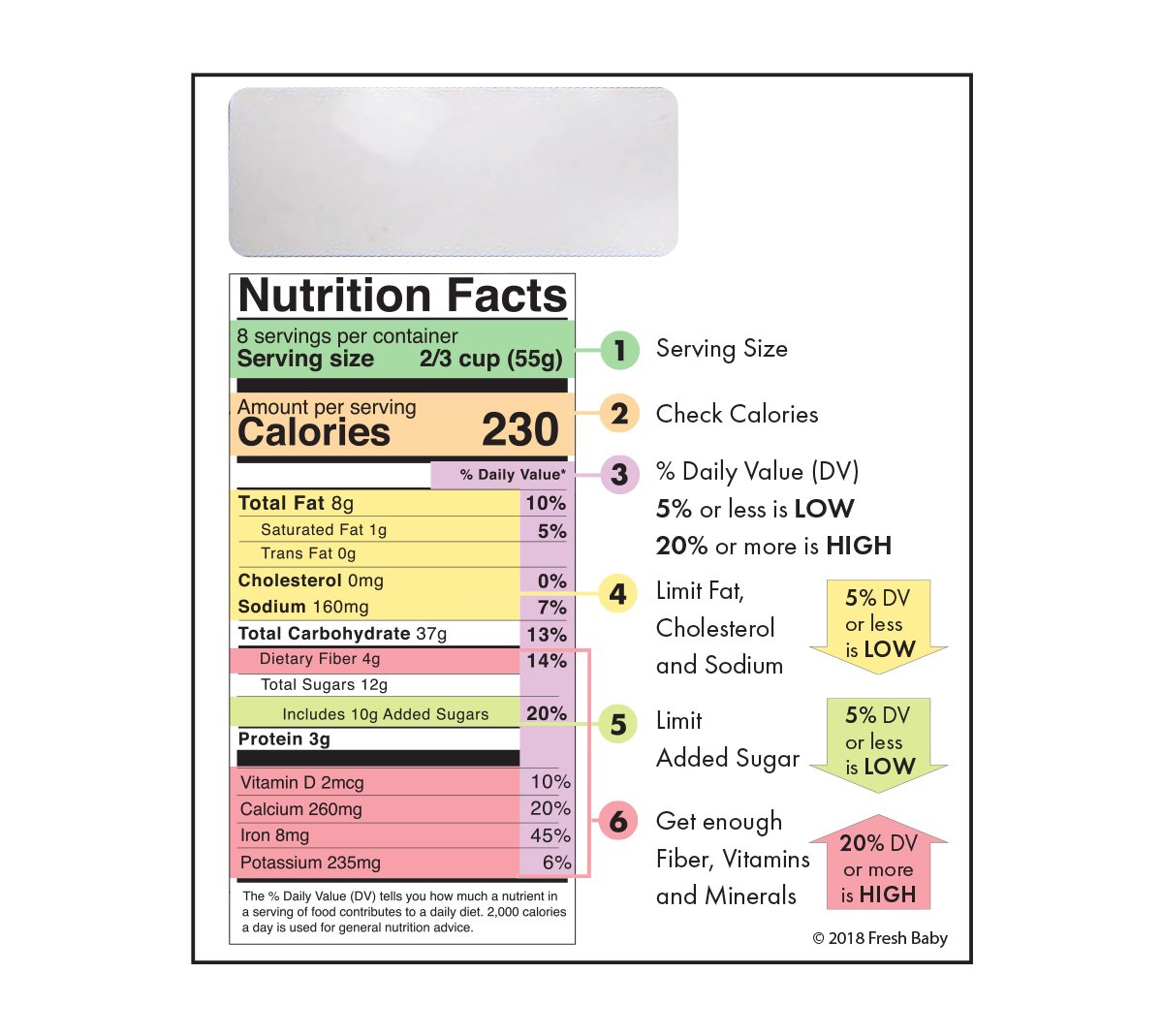

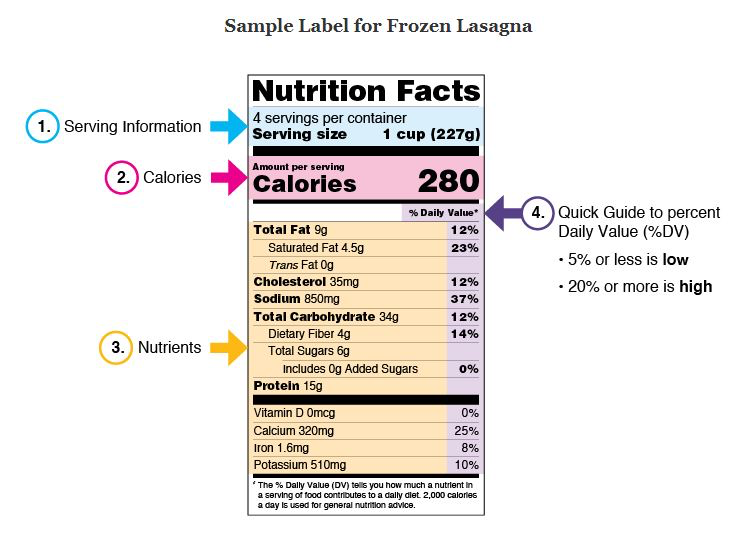


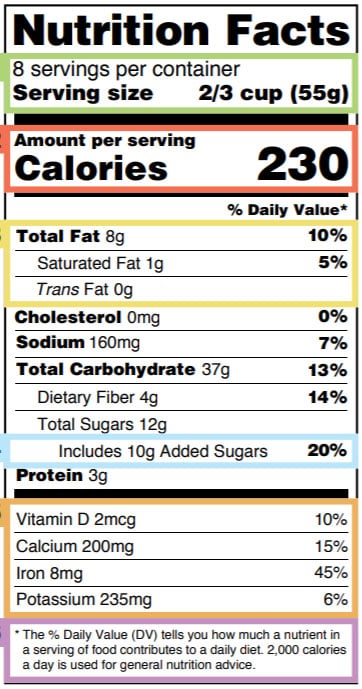
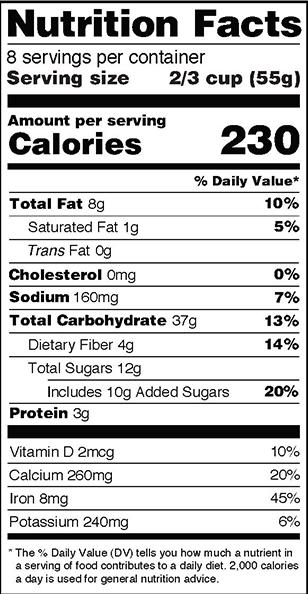




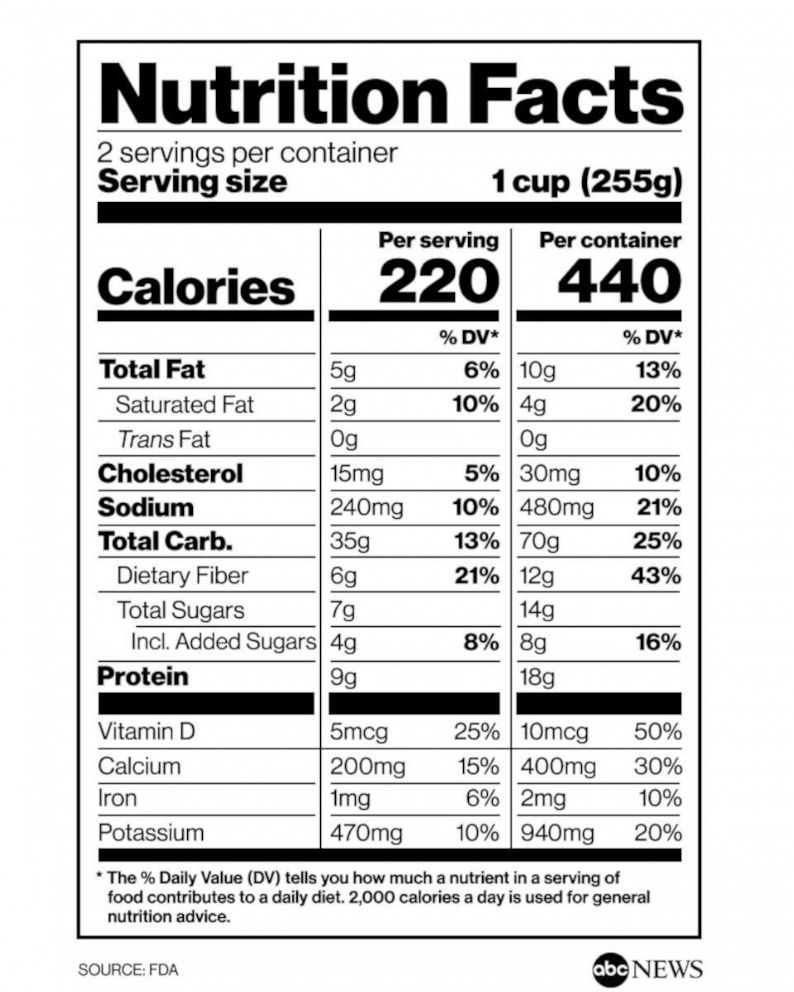
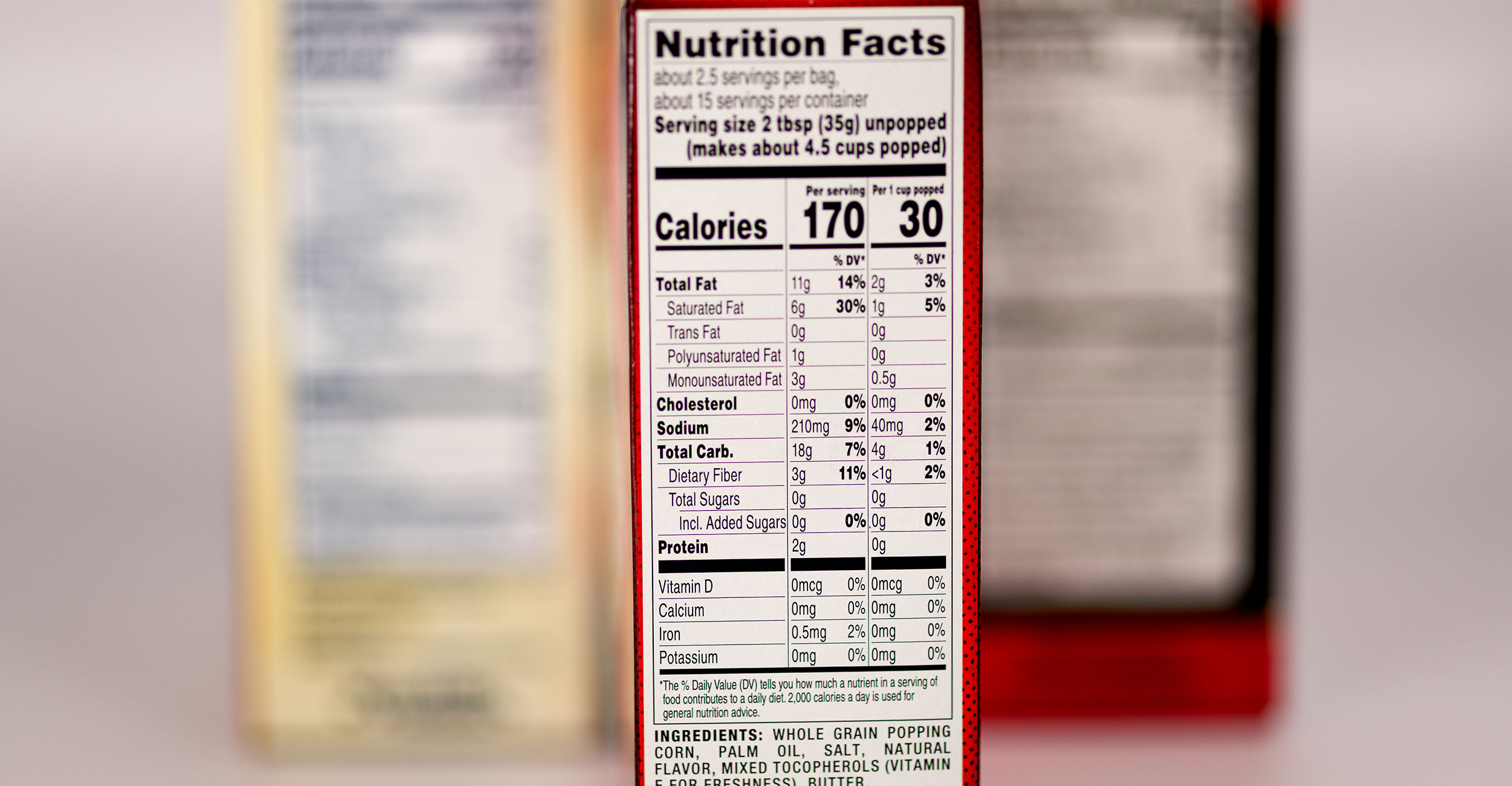
Post a Comment for "40 dv on food labels"